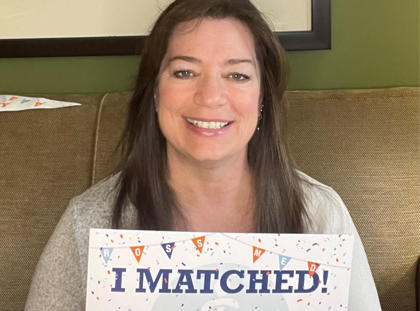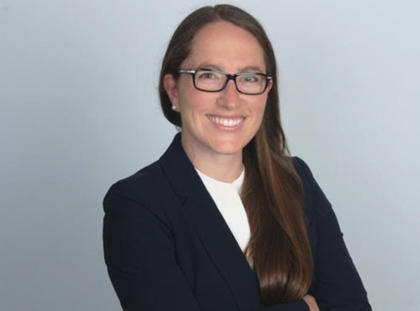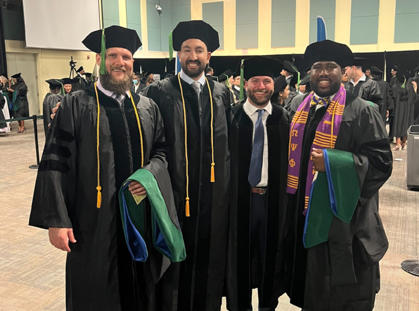When it comes to academic performance, Galili and Lytle have been on both sides of the aisle. Like many Ross students, they started medical school with less-than-stellar MCAT scores but a strong overall academic portfolio. Upon graduation, however, their impressive USMLE scores garnered them over 70 interviews – more than they ever “expected or needed,” according to Galili.
“We applied to about 135 programs,” he said. “Ross really prepared us well.”
Although both hail from Florida, her from Tampa and him from Orlando, they didn’t know each other until they met in Dominica on their very first day as the result of a successful parental conspiracy.
“So Meghan came [to Ross] with her dad and I came with my mom,” Galili explained. “My mom had a secret goal to make sure I had a friend before she left and Meghan’s dad had the same idea and we met, the four of us, in Roseau.”
One thing led to another, and they ended up becoming a couple soon after. “Our parents were so happy,” Lytle said. “They still joke about it to this day.”
Meeting as early as they did, Galili and Lytle were able to experience all of medical school – and now residency – together, which they noted was, and still is, a huge benefit.
“It’s been fun experiencing medicine together,” said Lytle. “We’re both very supportive of each other – he understands what I’m going through and I understand what he’s going through.”
Becoming a physician has been Galili’s dream for as long as we can remember. Born and raised in Israel, he moved to the United States when he was 17 for the express purpose of going to medical school. For Lytle, coming to the realization that she wanted to become a doctor came a bit later in life. While she excelled in the sciences, it wasn’t until she took a position as a scribe in undergrad that she realized what being a doctor was all about.
“That really opened the door for me,” she said. “I’m a very competitive person and I worked with a lot of doctors and they were good role models for me, and my motivation was to try and be like them.”
Now in their second year of their Internal Medicine residencies, both Galili and Lytle simple cannot imagine doing anything else.
“I’m so thankful,” Lytle said. “People ask, could you do another job besides this? I cannot.”
Becoming a physician – and an Internal Medicine specialist in particular – has more than met Galili’s expectations as well.
“Not to say that there isn’t much to learn in other specialties, but we both like to study – Ross really instilled that in us – and when you’re in medicine you get to learn so many diseases and differentials,” he explained. “And you get to help almost any adult, so you get to do what you like but you also get to help others, so for us it was perfect.”
As for their future plans, they both want to practice medicine, find a good work-life balance, and eventually start a family. Galili has also set his sights on doing a fellowship in hematology/oncology and is currently working – once again – on his applications.
“Career goals and family goals, I guess they go hand-in-hand because it’s difficult to separate,” Galili said. “I think it all depends on what ends up happening with the match. We are both very happy doing Internal Medicine and to be honest if I don’t end up in a fellowship then both of us will probably end up doing outpatient private practice together.”
Whatever their future holds, they know that they will experience it – and embrace it – together.
How long is Internal Medicine Residency?
Basic training for Internal Medicine is 3 years, and that's considered categorical training. Once residency is completed, the resident is eligible for board certification in internal medicine.



